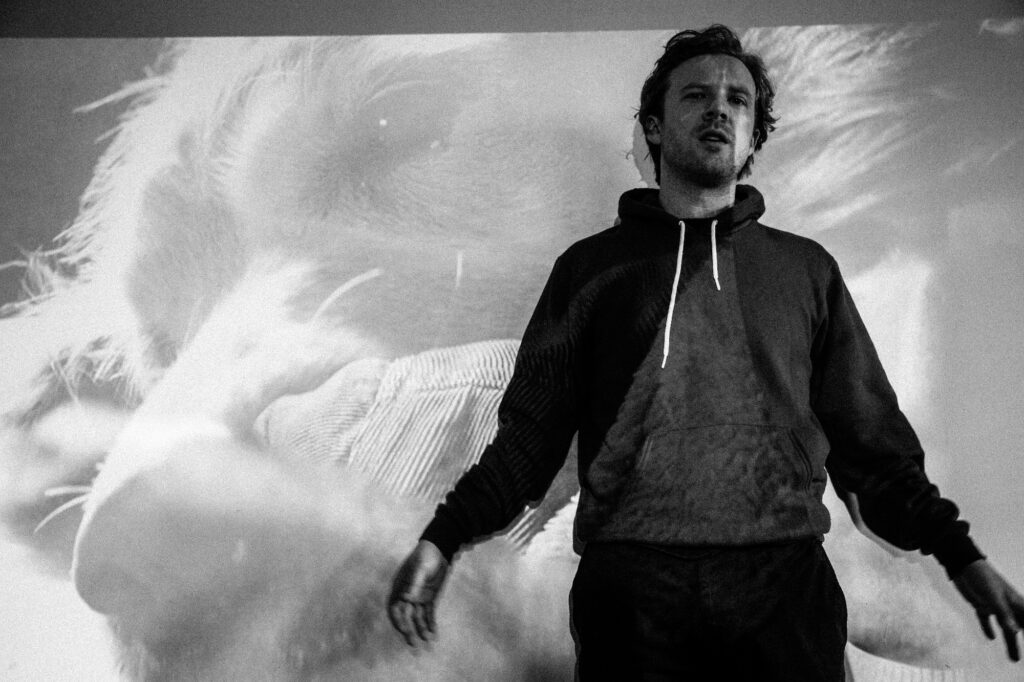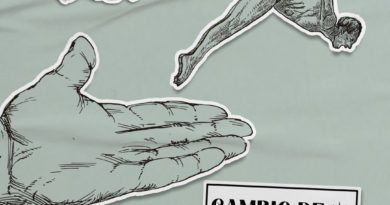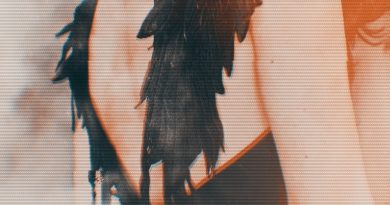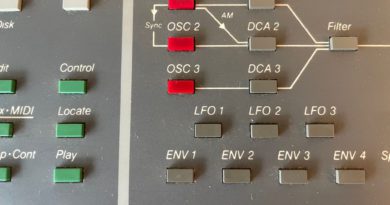A Chat with Good Sport (24.07.2020)
Good Sport is the synth-driven solo project of Ryan Hizer who you might know from the moderately successful band Librarians. He is now here to help you confront your demons head-on with his latest release ‘Big Push’. We sat down with Ryan Hizer (RH) to talk about the single, his music and much more!
OSR: What prompted you to become a solo artist?
RH: Restlessness, mostly. I love to collaborate and I work on a ton of music with other people, but working alone means I don’t have to wait around on anyone. Being responsible for an entire song forces me to shift perspectives as I’m working, which makes me a better role player in collaborative settings.
Also, it’s like journaling. For me a solo album documents a period of time in a personal way that I can get all nostalgic about down the road.
OSR: Do your surroundings affect the music that you create?
RH: For sure. I think a lot about how sensitive creative processes are to environmental conditions. The circumstances of the particular day you chose to work, your mood, how hungry you were, who you spoke to, whether you exercised, how bright the room was, what kind of dreams you had the night before, shape that day’s output. Everything has an effect. It’s freeing to acknowledge that a lot of what happens isn’t up to you.
OSR: What was the creative process for ‘Big Push’?
RH: I got the instrumental to a pretty finished state before thinking about the vocals, which is how I work 99% of the time. I knew I wanted it to feel propulsive and dynamic but also have a sort of droney, meditative quality to it. Once the instrumental felt right, it was a matter of figuring out what to say and finding playful vocal cadences. I wrote the vocals on this one backwards. Sometimes I have more success if I start at the end, like writing a book around a big climactic reveal. It becomes a game of “What would’ve made you say that? Ok. Well, would’ve made you say THAT?” Lyrics don’t come easy to me, but going in reverse turns it into a fun puzzle. I probably went through 2 or 3 different vocal treatments before settling on this one. Then it was a matter of going back and tweaking the arrangement around the vocal to get everything pulling in the same direction.
OSR: Which do you prefer, being a band member or a solo artist?
RH: I get more satisfaction out of solo stuff, but it’s tedious and frustrating. Playing in a great live band feels amazing and is generally less stressful. I hope I’m able to do both for a long time.
OSR: What is the biggest hurdle you have overcome in your music career?
RH: Probably the notion of it being a “career.” It’s easy for musicians to have really lofty aspirations in their early/mid-20s, but now that I’m well into my 30s, I’ve had to decide whether I view writing music as a potential career path or as a compulsive act. The odds that you’ll “make it” are just laughably low, and creating stuff you can be proud of takes an insane amount of time and energy. I always second guess the way I spend my time and tend to write only in moments when I feel compelled to get something down. It’s a means of expression more than a career option at this point in my life.
OSR: Is there a message for listeners in ‘Big Push’?
RH: This song is basically a three-minute self-directed plea to become a better person, which is a universal desire. No matter how good you are, nobody wants to be worse. Everyone wants to improve. Everyone wants to believe a better version of themselves is out there.

OSR: What do you enjoy most about being an artist?
RH: It’s always been a vague form of therapy for me and that is especially true now. The world is overwhelming. Being able to disappear into a headspace where I am only thinking about whether an instrument is in tune or whether a vocal performance works, that’s a more effective means of escape than anything else I can imagine doing.
OSR: What is your biggest musical challenge?
RH: Surprising myself. I’ve been writing music for 20 years, so I’m very familiar with my own tricks. Finding an idea that feels new and worth exploring gets harder and harder the more I do it.
OSR: When you create music, what is your personal purpose or goal?
RH: I’m just trying to get better. The next thing always has to feel like an improvement over the previous thing. I’ll never master any of this and there will always be geniuses who make my stuff sound like junk in comparison, but I still want to find out what I’m capable of.
OSR: What advice would you have for someone wanting to follow in your footsteps?
RH: God, I don’t know, just do your thing. Find the edge of your skills and constantly aim a little farther past them. Try to impress yourself. Make stuff you can be proud of and let the thought of the next thing excite you.
Thanks to Ryan Hizer for chatting with us! You can find more about Good Sport on his Facebook, Twitter, Instagram and Spotify.


